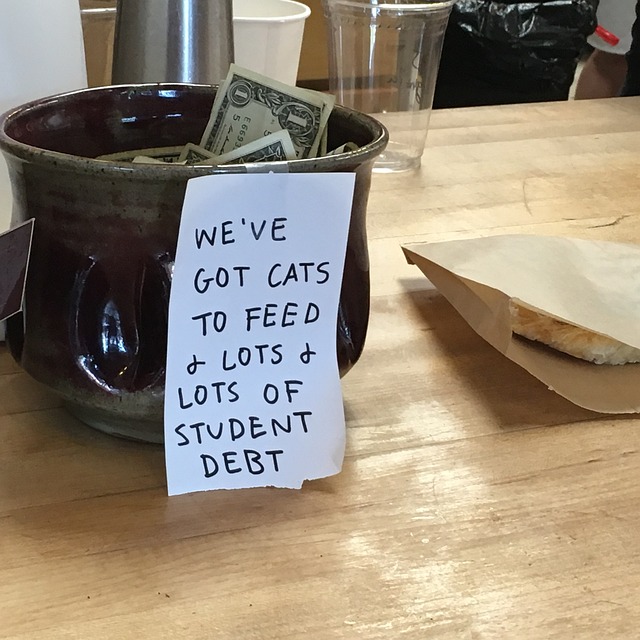

Tipping the Scales in the Wrong Direction
I am about to save you a whole bunch of money. If you just stick with me here and follow me along for the next thousand words or so, I will put genuine, hard-earned cash back in your pocket, prudently reducing your expenditures by as much as 20-25% on such items as coffee, haircuts, dining out, and salon services. And all I ask in return is that if you like this week’s column, you leave me a little something at the end.
Have you noticed how preposterously often it has become for retailers to turn that little signing screen or iPad towards you to complete your credit card transaction only to find yourself staring at a question for how much of a tip you would like to leave. Sometimes there’s an option for “No Tip”, but just as often, you have to select the icon for “Custom Tip” in order to enter a zero. You find the audacity presumptuous, but feel the pangs of anxiety mount, not wanting to come off as a complete and utter cheapskate in front of the gathering crowd behind you, who you are sure are espying and scrutinizing your decision. With the blinding light of public guilt and shame shining brightly into your retinas, you are tempted to scribble down something, anything to avoid the latent judgment implied in whatever you decide to write. But then you remember you are at the fucking dog groomer for chrissakes and that this shit isn’t supposed to be a service to which gratuities are meant to apply.
America is one of the few countries in which tipping is customarily practiced. In most other cultures, the price for good service is baked into the offered price for the good or service. But we are beholden to a raging form of capitalism where we only do something and do it well if someone is going to pay us to do so. Otherwise, screw that nonsense. So we devised a system in certain service industries that rewarded superior service with an incremental provision for financial remuneration that encouraged a measured attention to detail. And in fairness, a few trips to Parisian cafes where the staff are not beholden to working for tips may well have convinced us of the sagacity of the provision. But somewhere along the way, things got out of hand, and now everyone seems to be shoving their meaty paws in your face asking for some form of gratuity.

That’s because tips have gone from being an incentive to an expectation. No longer are tips an elective decision made by the customer regarding the relative meriting of a financial incentive. Now they are merely a presupposed ritual enforced by the presumptive standards of social judgment. If you tip less than 15%, it’s not because you had to endure the chastising eyes of your millennial waitress clearly irked by your disruption of her conversation with a co-worker. No, it’s because YOU are a stiff. And so you end up giving 18% even though the service was crappy.
But not only is tipping becoming more expected, it is also becoming pricier. During the 1950s, people commonly tipped 10% of the bill. By the 1980s, that percentage had jumped to 15%. In 2023, people typically tip anywhere from 15% to 25%. Consumers on average said they tipped more than 21%, according to a Creditcards.com survey in May 2022. Many of us understandably wanted to support our local waitstaff and bartenders during the trying days of the pandemic, eagerly increasing our gratuities to help these folks make ends meet after months of unemployment. But here we are on the other side of Covid and tipflation has yet to subside back to any iteration of pre-pandemic normality.
Worse yet, suddenly everyone seems to think they are entitled to some type of gratuity. One of my students works at Subway and was recently telling me about all the tips he makes working there. At Freakin’ Subway???? For making someone a fucking sandwich and ringing them up on a cash register? Isn’t that just your job? And exactly how did you go above and beyond providing good service in making me a sandwich? Did you run to the back to uncover secret ingredients and then put them altogether in a masterpiece of love and culinary prowess? Of course not- because this is Subway for crying out loud.
The same could be said of the entire take-out industry. Tipping is supposed to be for quality service when I am dining at a table in the restaurant, not when you reach behind the countertop to throw my food in a box and hand it to me. Why am I tipping someone who poured me a cup of coffee? If you just move out of the way, I can go and get it myself. These folks were never intended to be tip-compensated employees. Or at least, not until recently.
The reality is that it is businesses that have turned tipping into its own cottage industry in order to foist more of their expenses onto their customers and thus take home an even more disproportionate share of the revenue generated by the business itself. Higher tips and tips to formerly non-gratuity employees mean that employers can provide a lower hourly wage and still be competitive in their hiring. With tipping now more common, day spas can compensate masseuses less and thus take home more of the pie. But if Starbucks is going to charge me $5 for a black coffee, shouldn’t they be the ones paying for their baristas?
And so I say, screw it. Turn that little screen back and be proud to put a zero in there. Pay for your Subway sandwich and hold the tip. And in the end, give yourself a gratuity, because hey, you make one hell of a sandwich.
Steven Craig is the author of the best-selling novel WAITING FOR TODAY, as well as numerous published poems, short stories, and dramatic works. Read his blog TRUTH: In 1000 Words or Less every THURSDAY at www.waitingfortoday.com





